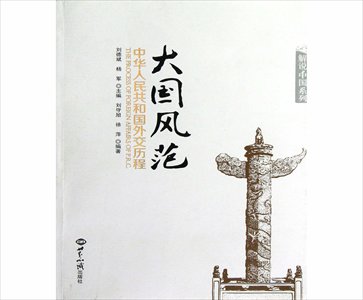New diplomatic victories not isolated from nation’s difficult history

A country's historic process of its foreign affairs can reflect the constant changes on world stage, as well as the ebb and flow of its national strength and subtle improvements in its diplomatic concepts.
In January 2013, China's World Affairs Press published The Process of Foreign Affairs of PRC, edited by Liu Debin and Yang Jun, professors at Jilin University. In the book, the authors select several representative events in the PRC's diplomatic history and try to use them to draw an outline of the development of the country's foreign affairs.
China's groping toward its own diplomatic development was tortuous. After the founding of the PRC in 1949, Chinese people started their own diplomatic enterprises. China built friendships with Pakistan in this period and helped build the Tanzania-Zambia Railway.
At the time, extreme left-wing views dominated China and had a strong impact on various aspects of diplomacy.
But during this period, China eventually made progress in foreign affairs. It used "ping-pong diplomacy" to break the ice and reestablish contact with developed countries such as the US and Japan.
After China's reform and opening-up, China's diplomacy made fresh progress. The book uses two examples: the time when Margaret Thatcher, then British prime minister, stumbled on the steps of the Great Hall of the People in Beijing, and Coca-Cola's return to China, to show the change of China's position in the world.
After 1989, China's diplomacy once again weathered difficult times, but a tough situation was improved by China's own improvements and adjustments.
The Process of Foreign Affairs of PRC does not review the development of China's foreign affairs in detail. Instead, it lists typical events that represent in microcosm what has happened in the country and the world as a whole, so as to show us both the prevailing trends and the skeleton of diplomatic policy.
As China enters into the new century and witnesses dramatic improvements in its economic strength, the country's diplomacy has also come to a brand-new age in which many achievements have been made. However, these achievements cannot be viewed in isolation, and on no account should they be viewed as a sign of a newly assertive rise alone.
These achievements originate from previously searches and creations in China's tortuous road.
The book provides readers with an overall skeleton of China's foreign affairs, and current achievements cannot be comprehended properly without understanding this framework of the process of China's foreign affairs.